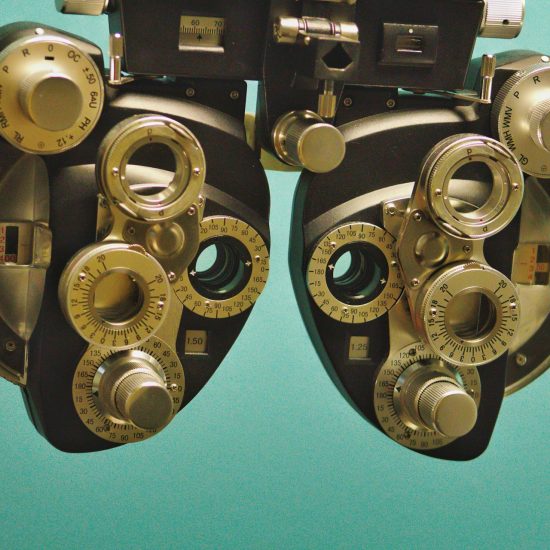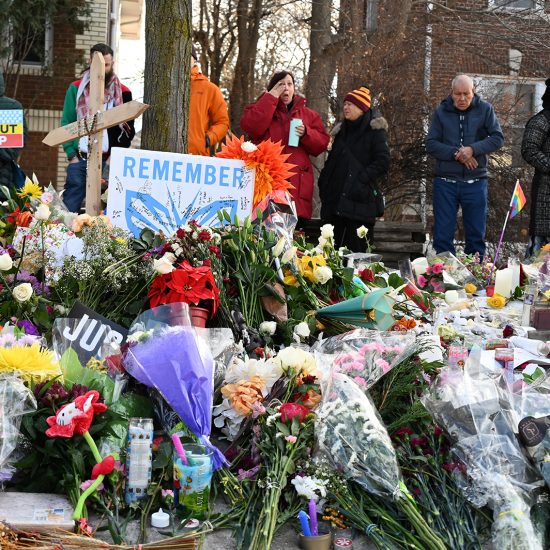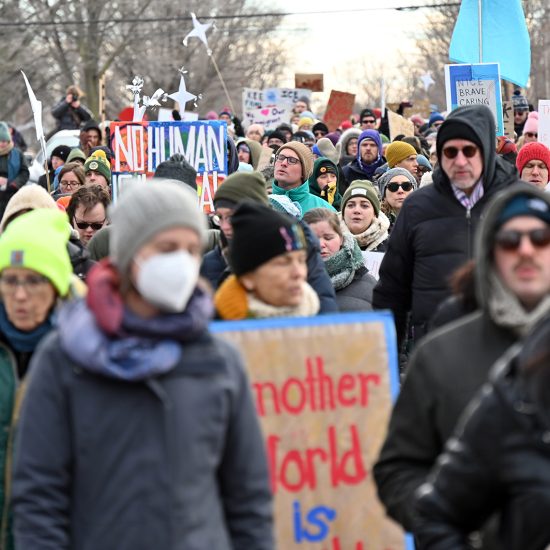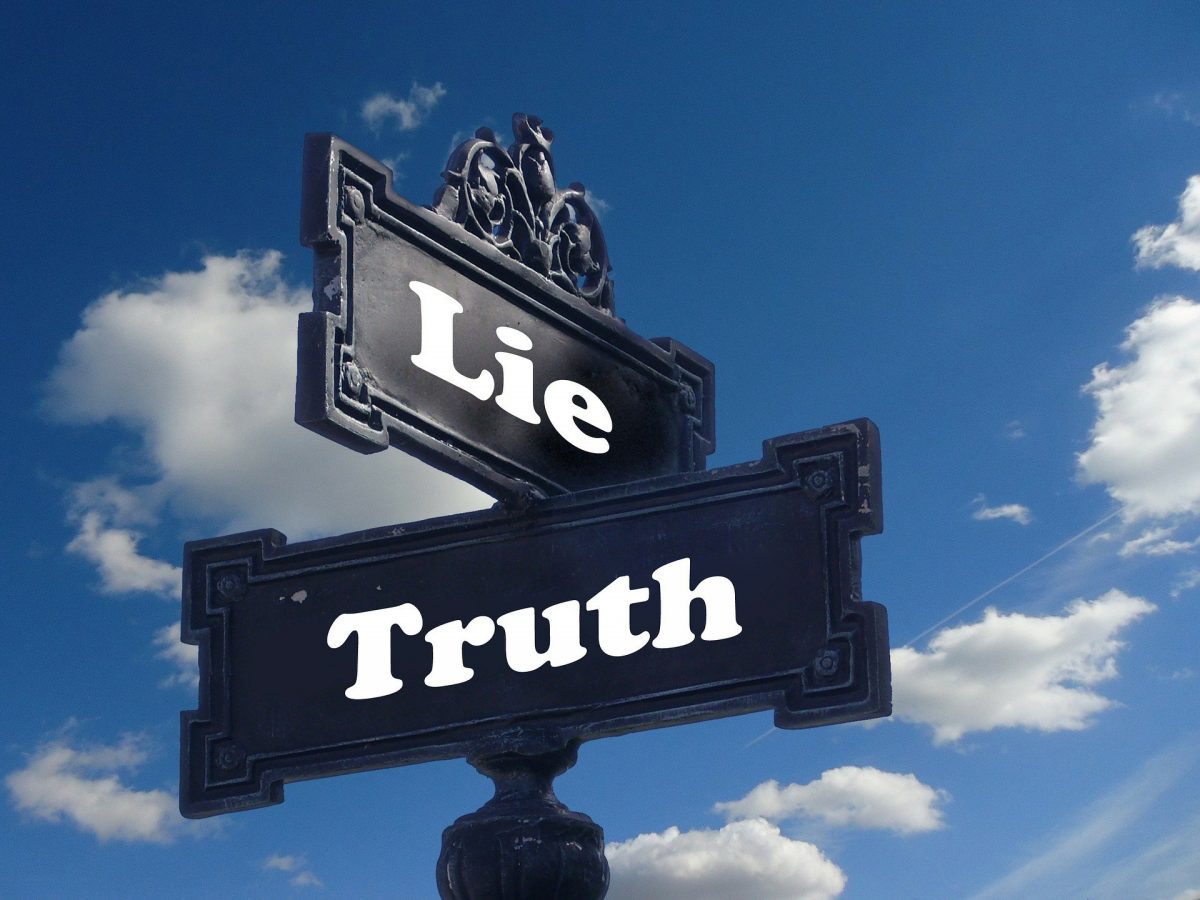
(RNS) — When a whole community has become immersed in a moral crisis, what’s actually gone wrong becomes difficult to recognize with any clarity.
The threat of Donald Trump (even now, one week after the election) and of what now deservedly can be called Trumpism has never been primarily about policies. Democrats and Republicans, Libertarians and independents, have always differed and will always differ about taxes, Iran, immigration, abortion, criminal justice, climate change, trade, minimum wage — you name it. Arguments over issues are the routine work of a functioning political community.
But in our current moment, a focus on policies amounts to misdirection. What we are witnessing right now is a crisis of truth and character.
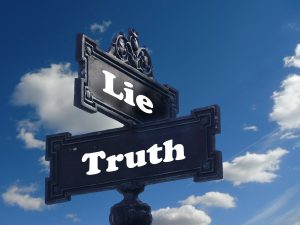 A moment’s reflection reminds us that no relationship, including in a society, can long survive without at least a roughly shared account of reality and a willingness to submit to it and, even when we disagree on what to do about the reality in front of us, to speak truthfully about it.
A moment’s reflection reminds us that no relationship, including in a society, can long survive without at least a roughly shared account of reality and a willingness to submit to it and, even when we disagree on what to do about the reality in front of us, to speak truthfully about it.
This truth about truth operates so commonly we don’t think about it: The toast was burnt so we throw it out. Our child is sick and we take her to the doctor. The weather is cold and we decide that that same child needs to wear a coat. We speak harshly, and on reflection we apologize.
This is the same way we have talked heretofore about our elections. While campaigning for the presidency in 2012, Mitt Romney never cast doubt on the legitimacy and fairness of the election, not even after he lost. He conceded after the results clearly showed that his opponent had secured the necessary votes.
Similarly, this election is over. Joe Biden got over 270 electoral votes, and so Joe Biden is the president-elect.
What’s new, of course, is Trump. The president has repeatedly proved himself unwilling to do the very examination, reflection, and consideration that constitute a search for truth — even the most plain fact — because he’s unable to assimilate information that he does not want to face. He is equally unwilling to submit himself to truth that has been found by others, if he does not want to know it.
It really doesn’t much matter why Trump lives in falsehood. The president’s niece Mary, in her book Too Much and Never Enough, offers a firsthand account of the grave family dysfunctions that produced this peculiarly morally damaged man. It is a sad story.
What’s important right now is that with Trump in power, his alienation from truth has spread to others. Sure, one can see warning signs earlier, but what we are seeing today, when major figures of one of our two political parties are simply making stuff up in order to corrode confidence in our free, fair elections — the cornerstone of democracy itself — was inconceivable before Trump came on the scene.
Most accounts of good character in both philosophy and theology recognize that commitment to truth — seeking truth, submitting to truth, telling truth, living in truth — is a crucial virtue, and that mendacity is a dangerous vice corrosive to self, relationships, and community.
Trump’s mendacity is the primary reason he should never have gotten near the White House. He has lied about himself, his businesses, his opponents, his relationships, his country, COVID-19, and both of his presidential elections.
This was the guy who said Ted Cruz’s father was involved in the Kennedy assassination. This was the man who led the anti-Obama birther movement. And now, this is the president of the United States, who has lied over 22,000 times in office, who threatens not to leave and who has sufficient political power (even after his defeat) that he can entice, or coerce, millions of people, including responsible government officials, to live in falsehood along with him.
His toxicity is poisoning our society. It has led us to treat the truth as we do policy arguments, as an opinion, a matter of partisanship. It has bent the leadership of the Republican Party to his reality-distortion field, to the point that those leaders will risk the peaceful transfer of power following a free and fair election.
Millions of Christians are implicated as well. The Bible speaks frequently of the centrality of truth and of living in truth — and speaks more broadly about good character and its requisites. But tens of millions of Christians have sacrificed their purported biblical commitments to truth and character in order to get … what? Judge Amy Coney Barrett? The U.S. Embassy in Jerusalem? The possibility of overturning Roe v. Wade? A nice signed red hat?
Truth is real. We may not like it, but we must seek it and submit to it, or everything breaks down.
David P. Gushee teaches Christian ethics at Mercer University and is the author of After Evangelicalism.


